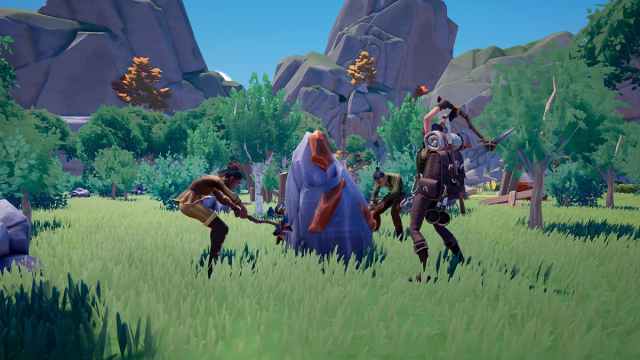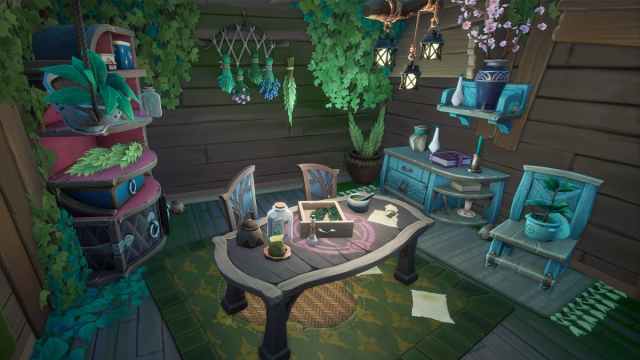Indie studio Singularity 6 has released its life simulation MMO Palia into beta. Cozy and filled with colorful NPCs, a variety of skills to level, and plenty of places to explore, Palia adds unique qualities to that iconic mixture that’s proven wildly popular over recent years. Skill choices are both distinctive and familiar, including the basics of gardening, fishing, and insect catching. It’s a game that’s been on the radars of many life and farming sim players, myself included.
After hours of playing through the closed beta, I can say without a doubt that I’m addicted to Palia. There’s a ton of content already, the vibe is calming and welcoming, and there’s endless customization options for your home. Palia is already easily one of my favorite games to relax to.
Palia Beta Impressions: The Coziest of MMOs

As a new entry into the popular farm simulation genre, Palia is a breath of fresh air. You catch bugs with smoke bombs, can hunt wildlife, gain companion planting bonus with crops, and, of course, romance villagers. On top of all that, there’s a multiplayer component from the MMO side of things.
The story, too, is different than others in the genre. Instead of just inheriting a farm and trying to revive it, you’re a newly materialized human in a world where humans no longer exist. The NPCs are loveable despite being fairly basic archetypes on the surface.
Community is a focal point in Palia, and the dev team’s goal of “fun solo but better with friends” comes through loud and clear. Recently, I joined six other people to cut down a small grove of trees. Each of us took a single swing before chopping the tree so everyone could get the rewards conferred by the action. We roamed the area all repeated the process, getting everyone a good amount of flow-infused wood.
That’s only one way the Palia highlights community, though. The players are wholesome, too. Whenever someone asks a question in chat, it gets answered without criticism. People actually fulfill requests from others. There’s no toxicity. Heck, there’s no PvP or combat at all in the game. It’s simply the most calming multiplayer game I have ever experienced, and interacting with the community is fun because of how Singularity 6 has built the game.

Unique stories, skill progression, and game mechanics are what help set apart one farming sim from another. While Palia embraces the games that came before it and their most popular traits, it also introduces new ways to play.
You can see the differences right off the bat when you materialize into the world. You’re one of the newly formed humans, appearing in a society that hasn’t had humans in hundreds of years. While you’re given a plot of land to work, the focus is on building a home instead of reviving a farm. The story further develops as you delve into ruins, solve riddles, and discover what happened to the humans now gone. While I love the good ol’ inherited farm story, this distinct storyline makes Palia stand out in my mind.
It also has original skills like hunting and furniture making. No other farm sim that I can think of has true hunting. You can kill monsters in mines and catch bugs, but actual hunting is nonexistent. I really like this addition because real-life homesteading involves a lot of hunting, whether for furs or food. It adds another layer to the game that I feel hasn’t been explored before and am excited to keep leveling it up.
Furniture Making is the other interesting skill not found in too many sims like Palia (2021’s Hokko Life was built around the mechanic, but it soars here). While you can buy a variety of furniture and house upgrades, this skill allows you to make the furniture yourself. You get to find the wood, carve the chair and put together your completely customizable house. From how you decorate it, to the different color choices to the reward plaques you show, your home can become the perfect representation of you as you gain experience in building.
The main downside of Furniture Making is you can’t sell any of the furniture you build. Since it’s all customizable, none of the vendors will take it, nor can you deposit it in your shipping bin. While it won’t clog up your storage bin due to unlimited furniture storage, you can’t make money off your resources, either. Yet, anyway.

Each skill comes with its own Guild Shop, storyline quests, and Weekly Challenges. After reaching Level 10, you can start earning guild coins, which unlock new recipes and plans for you to craft. Since this is an MMO, skills have no level cap and can be worked on consistently, meaning more content for skills is most likely planned for future updates.
When it comes to the NPCs, on the surface, many of them are basic archetypes. Nai’o is the himbo, Kenyatta is the rebellious, edgy teen, Reth is the bad boy, Eshe the rich snob. Digging in deeper to their stories by becoming friends with them reveals more depth to some of the characters. I admit I haven’t built relationships with all of them to be able to confirm each NPC has hidden secrets, but it seems like the writers have more planned for each character to build off this base.
Even so, the villagers are vibrant and enjoyable when interacting with them. Except Eshe. I never enjoy interacting with her. They fill the space of Kilima Village in a helpful and welcoming manner. Each of them has their own interests, fashion choices, and taste in decor and food, that brings to life the small town. I greatly look forward to the addition of new NPCs and how they’ll interact with the original villagers.
This is all in addition to the main storyline of the game: what happened to the humans, and why are they back? You get to explore forgotten ruins, solve riddles and learn about the lore of Palia.
That’s just at the start of the beta phase. New NPCs, more quests, and additional adventure zones are already planned for the future. I hope something concerning the Grimalkin gets included. Just how did these space cats come to live in Palia?
I happen to love the vivid, pastel colors that permeate the game. The shapes of the homes and the town are amazingly quaint. It’s calming and inviting for players, but also mysterious. What are all these ruins scattered around town? Where do the Chapaa go when they disappear? Who are these random statues of? It’s all there pulling you in deeper in the game.
I knew I would like this game the moment I started playing it. What I didn’t know was how much I would love it. I want to catch all the fish, explore all the ruins, date Reth, wish Hodari was a romance option, and build the homestead of my dreams. I can’t wait to uncover all the lore of this world. If you like cute farming games, you should definitely check out Palia.
When you jump in, head over to our Palia guides library. We’ve got walkthroughs on the basics of fishing and cooking, how to complete the Ancient Battery quest, who you can date, and more.







Published: Aug 11, 2023 03:09 pm